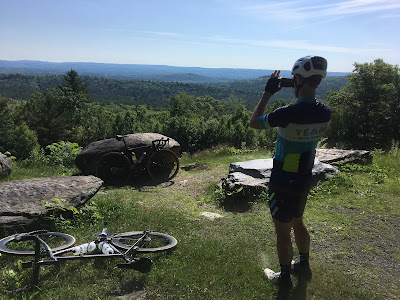#thelobsterroll, day 5
I read a line in a novel the other day that struck a cord. The cord is still resonating.
“People feel pain, and it shrinks their souls.”
Context: There are parents. Their baby dies. Unexpectedly. They just find him, cold and lying unnatural in his crib. Nearly two decades on and these parents still hurt. The author offers this observation, that pain is a given, and that we are the worse for it.
It is a melancholy truth. Life is full of melancholy truth.
I read something the other day—someone posted a link on FB—and unfortunately I don’t remember the title or the author so I can’t look it up and cite, but, in it, the author made a point about relative social closeness to someone suffering from some sort of illness, like cancer. It had to do with license to complain. The point, I think, was that the person who is ill gets to complain about whatever they want, to whomever they want. Then there are those who are super close to them—say a spouse, or children, or parents—they get to complain, but only to others, outward, but not to the person who is ill. Then you go out a bit more—close friends, say—and they can complain to folks that are still further removed, but not inward. They don’t get to complain to the person who is ill, or their spouse, etc.
Anyway, imagining these people grouped in concentric circles by relative social distance was a helpful mental image for me. Not so much in thinking about who gets to complain to whom (which I didn’t really find that interesting), but rather in who feels the thing. A diagram of the relative domains of sorrow, maybe. Or something like that.
I don’t know what it’s like to be suffering from a life-threatening illness, but I can imagine. And the thing that I imagine is the emotional toll such a thing would have on those close to me. I’m sure I would complain and whine, such is my nature. There would be good days and bad. I might curse my luck and genes and the stars—“Is it even so? then I defy you, stars!” But I think (I think) that I would worry most about how my being sick hurt those I have been lucky enough to have loved me.
It seems, to me, that the lion’s share of the emotional pain associated with serious illness lies with those who love those who are ill. And this, I think, falls into the category of what I would call a beautiful tragedy—tragic, for obvious reasons, but beautiful, because if we could not love we would not feel pain, but to love is to suffer. But love is also beautiful, maybe the most beautiful thing. Thus, a beautiful tragedy.
What a terrible irony, no? Born of a terrible paradox…
Well, here’s another paradox (sort of): Riding bicycles to promote a cancer-hating charity.
But it works for me. Doing hard physical things, pushing bodies to new limits…there is beauty in this. A celebration of life. Or, as Eric Liddell put it, “God made me fast. And when I run, I feel His presence.” (God didn’t make me that fast, but I still feel my most human—like I am most fulfilling the measure of my creation, when I am at my most fit, and doing a thing at my very capacity.)
The effects of cancer, or any serious illness, are the opposite—it is our bodies betraying us.
So it makes sense to me to promote a cancer-hating charity by pushing personal physical boundaries and celebrating what it means to be alive. It makes all the sense in the world.
If you haven’t yet, please consider tossing a couple dimes to the Flatwater Foundation, which works with therapists to provide mental health services to folks impacted by a cancer diagnosis at a fraction of the market rate.
Mmm… Smell the salt in the air. We’re in Maine now, and tomorrow, our last day, we’ve 96 miles of coastal riding and then we’re done. It will be a celebration of life.
...
 |
| Maine! We made it! So we can stop now, right? Another front-ended day...these small, fairly steep climbs took a toll. Full ride details here. |
 |
| (CJ photo cred for the shot of this tall drink of water.) |
Oh, and don't miss my second guest appearance on Pie Guys!












































